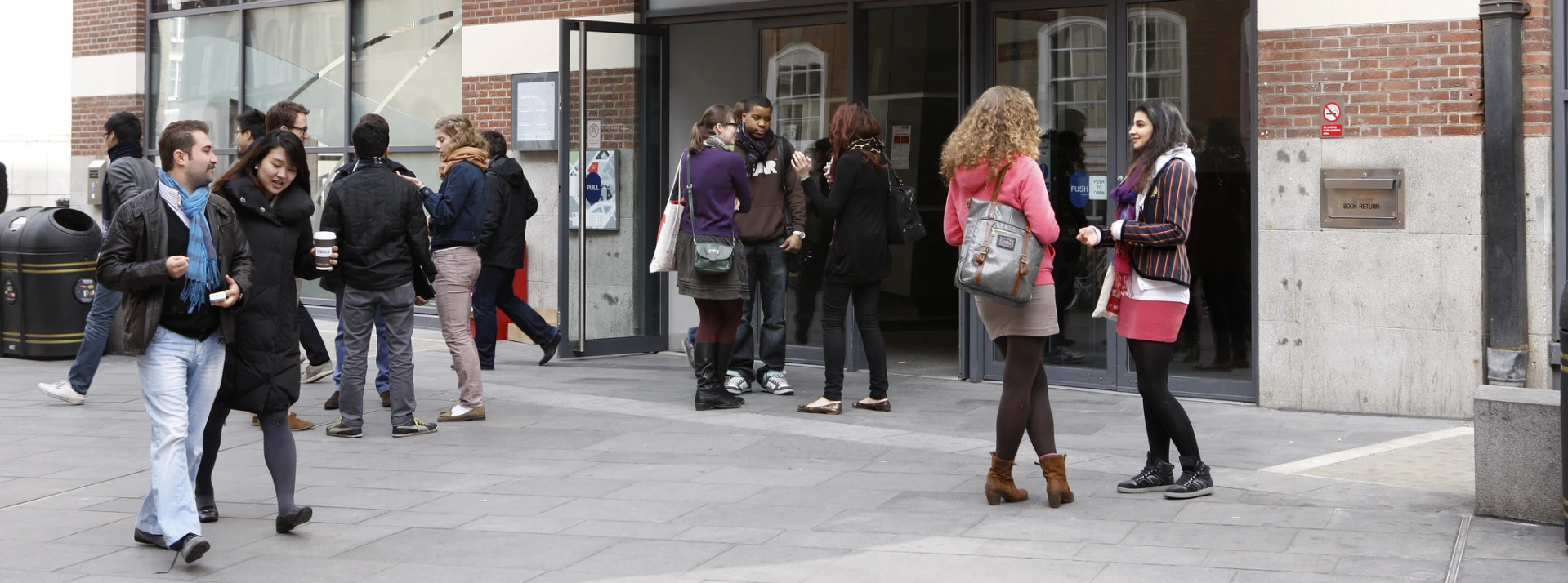Teaching

The III supports a diverse range of interdisciplinary teaching, with programmes at Master's and PhD level.
Our programmes include the MSc in Inequalities and Social Science, the Atlantic Fellows Programme, and the III Doctoral Programme.
See below for more information on our teaching programmes:
As a result of dramatic economic and social changes over recent years, the study of inequality has rapidly developed as one of the most important areas of inter-disciplinary social scientific study.
The MSc Inequalities and Social Scienceis a comprehensive and wide-ranging programme, providing an introduction to a range of interdisciplinary approaches to the social scientific analysis of inequality. The MSc programme, co-organised by the International Inequalities Institute and LSE's Department of Sociology, includes expertise from leading academics across LSE, giving students the opportunity to study inequalities from a wide range of perspectives.
A limited number of fully-funded places on the MSc are available to successful applicants to the Atlantic Fellows for Social and Economic Equity programme (AFSEE). AFSEE is an innovative fellowship bringing together policy-makers, activists and movement-builders from around the world to explore and challenge the root causes of inequality.
Programme Director: Dr Sam Friedman
See here for information on the programme and how to apply.
Read about our MSc students' experiences and graduate destinations.
Atlantic Fellows for Social and Economic Equity (AFSEE) is a fully-funded fellowship programme that brings together mid-career activists, policy-makers, movement-builders and social change leaders from around the world to the LSE to work across disciplines and borders to understand and address the root causes of inequality.
There are two tracks in the AFSEE Fellowship: Residential and Non-Residential. Members of the Residential track undertake the MSc in Inequalities and Social Science at LSE during their active fellowship year, while Non-Residential Fellows undertake a Postgraduate Certificate in Social and Economic Equity.
Applications will open for the 2027-28 Cohort in Autumn 2026.
III Doctoral Seminar
The III Doctoral Seminar was an interdisciplinary seminar for PhD students from across the School whose research related to inequality in some way. Students holding "Analysing and Challenging Inequality” (ACI) PhD Studentships were expected to attend, and applications were invited from any other MPhil or PhD students enrolled in any department at LSE, regardless of year of study.
The seminar was a forum for the exchange of ideas and for discussion of research questions and methods across a School-wide community of (junior and more senior) researchers interested in inequality, its causes and consequences. It brought together people working in disciplines such as economics, political science and political economy, sociology, anthropology, law, philosophy, and psychology. The overarching aim of the programme was to increase understanding of the mechanisms that link the economic dimensions of inequality with their social, cultural, and political context. The programme was led by Professor Francisco Ferreira, Dr Xavier Jara-Tamayo and Michael Vaughan, all based at the International Inequalities Institute (III).
PhD Studentships on 'Analysing and Challenging Inequalities'
From 2015 to 2023, LSE offered doctoral studentships for PhD study in any Department for research addressing ‘Analysing and Challenging Inequalities’.
Topics covered any aspect of economic, social, cultural and/or political inequality, in any part of the world, at any time, addressing whether, why and how such inequalities were intensifying. Students could propose to use quantitative, qualitative, archival, or mixed methods.
Students applied to specific Departments and were affiliated to LSE’s International Inequalities Institute. They were part of a dynamic research culture exploring the links between the economic dimensions of inequalities with their social, cultural and political aspects to systematically assess whether and how inequalities might have been hardening in mutually reinforcing ways. As well as being supervised by experts in their home Departments, they were actively mentored by a group of leading scholars with proven records of research on inequality.
- Valentina Gabrielli
PhD candidate in Economics, Paris School of Economics
September 2025 - December 2025 - Alejandro Puerta
PhD candidate in Economics, Universidad Carlos III de Madrid
September 2025 - December 2025 - Mercedes Tejería-Martínez
PhD candidate in Economics and Statistics, University of Cantabria
September 2025 - December 2025 - Victoria Hünewaldt
PhD candidate in Economics, University of Siena
January 2026 - March 2026